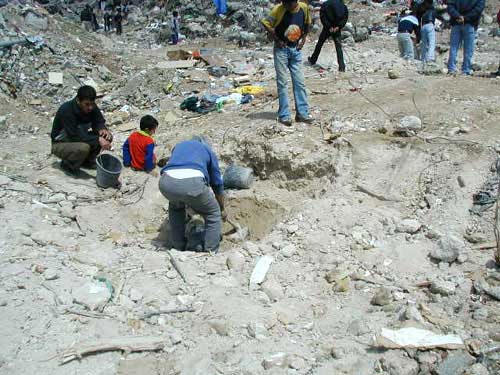
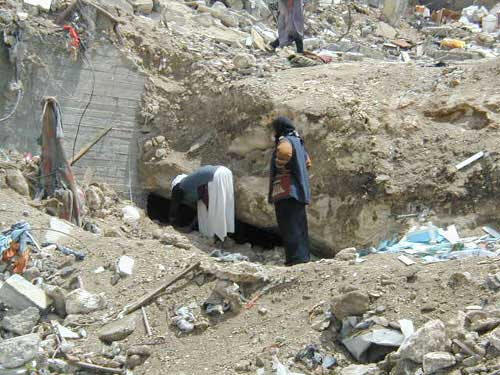
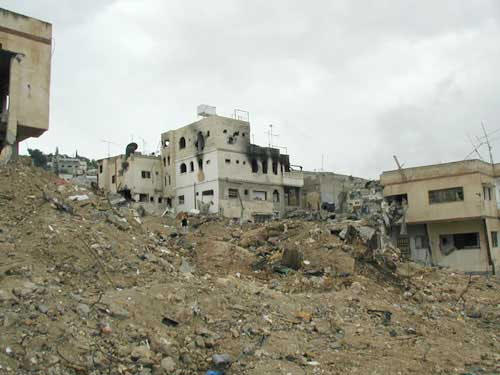
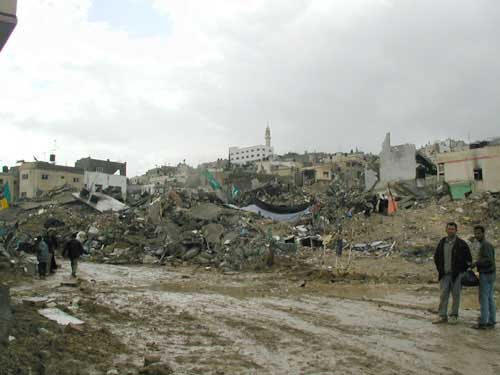
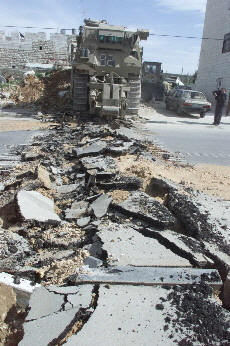
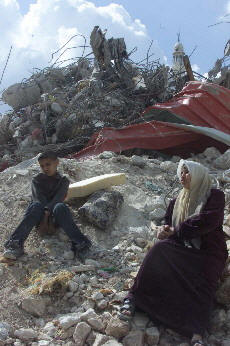
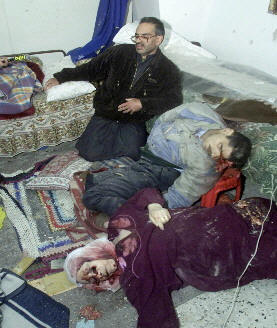

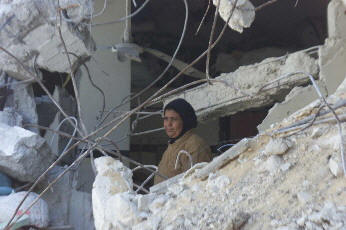
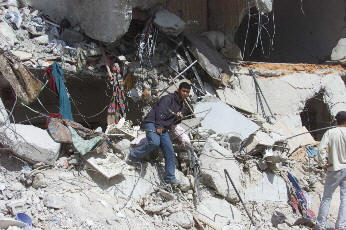

Jenin - a nuclear class war disaster
Jenin
Palestinian massacres
Civilian massacres
Jenin - a nuclear class war disaster
Reporter Phil Reeves wrote for London’s The Independent 16 April 2002:
“A monstrous war crime that Israel has tried to cover up for a fortnight has finally been exposed. Its troops have caused devastation in the centre of the Jenin refugee camp, reached yesterday by The Independent, where thousands of people are still living amid the ruins. . . . The sweet and ghastly smell of rotting human corpses is everywhere, evidence that it is a human tomb. The people who spent days hiding in basements crowded into single rooms as the rockets pounded in say there are hundreds of corpses entombed beneath the dust, under a field of debris, criss-crossed with tank and bulldozer treadmarks. . . . A quiet, sad-looking young man . . . led us across the wasteland, littered now with the detritus of what were once households, foam rubber, torn clothes, shoes, tin cans, children’s toys. He suddenly stopped. This was a mass grave, he said, pointing. . . . We could not see the bodies, but we could smell them. . . . Until two weeks ago there were several hundred tightly packed homes in this neighbourhood . . . . They no longer exist. Around the central ruins there are many hundreds of half-wrecked homes. Much of the camp — once home to 15,000 Palestinian refugees from the 1948 war — is falling down. Every wall is speckled and torn with bullet holes and shrapnel, testimony of the awesome, random firepower of Cobra and Apache helicopters that hovered over the camp. Building after building has been torn apart, their contents . . . spewed out into the road. Every other building bears the giant, charred impact mark of a helicopter missile. Last night there were still many families and weeping children living amid the ruins, cut off from humanitarian aid. Ominously, we found no wounded . . . . Israel was still trying to, conceal these scenes yesterday. It had refused entry to Red Cross ambulances for nearly a week, in violation of the Geneva Convention. Yesterday it continued to try to keep us out. . . . Hidden, whispering people directed us through narrow alleys they thought were clear. When there were soldiers about, a finger would raise in warning, or a hand waved us back. We were welcomed by people desperate to tell what had happened. They spoke of executions and bulldozers wrecking homes with people inside. . . . Rajib Ahmed, from the Palestinian Energy Authority, came to try to repair the power lines. He was trembling with fury and shock. ‘This is mass murder. . . . ' All had the same message: tell the world.”